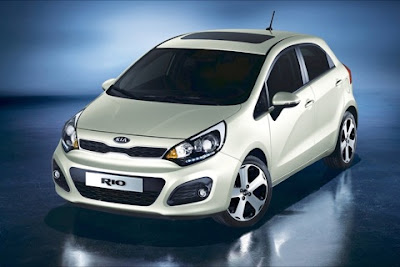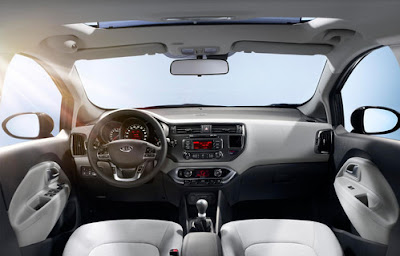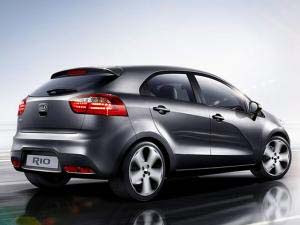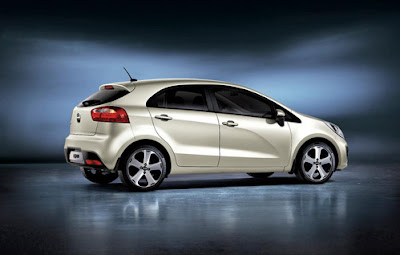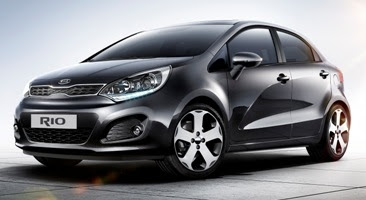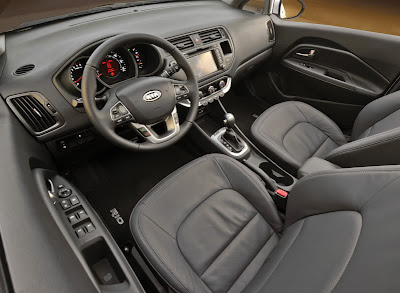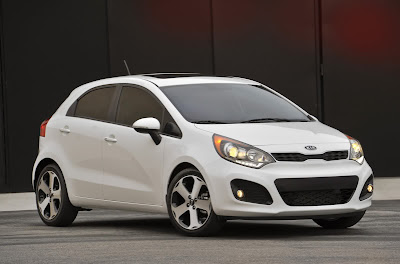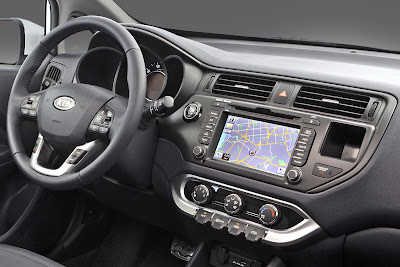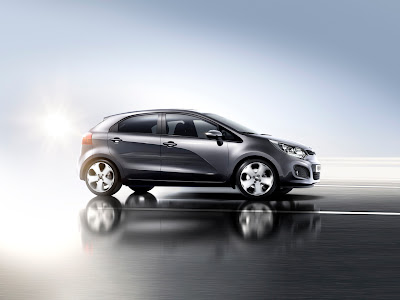The fourth-generation Kia Rio, unveiled at the Geneva Motor Show 2011, is a bold and distinctive personality, bringing the latest model in line with the rest of the line Kia design striking LED products.
Besides appealing to the aesthetic tastes of consumers, the new Kia Rio will spearhead the company's efforts to significantly increase its market share worldwide by providing potential homeowners references industry leaders means environment.
The new Kia Rio model is longer (20 mm), large (25 mm) and lower (-15 mm) and has a wheelbase of 70 mm (2,570 mm) - passenger space, which greatly improves capacity y. With a total height of 1,455 mm, the new Kia Rio is one of the lowest car Kia range of European products.
Manufacturer for the first time in a choice of 5 doors and body style 3-door (in Europe), the 2012 Kia Rio has been completely re-position as one of the most competitive vehicles in a competitive industry - the segment B.
Kia Market Research expects global demand for cars in the segment B is expected to grow significantly over the next two years.
Mechanically predictable from Rio well with Accent, from 101.2-inch wheelbase of its direct-injection 1.6-liter four-cylinder. Mated to a six-speed manual or optional six-speed automatic, hatchback is expected to reach 29 mpg city and 39 mpg on the highway. Kia estimates the sedan will be 30 mpg in the city with the condition now 40 mpg on the highway. A unique feature of Rio is an option to start / stop system, which will be available shortly after launch and is expected to net even a mile per gallon in the EPA city cycle. Kia believes (like other car manufacturers, we spoke with such systems) for real-world benefits for those who drive in the city will be larger.
Developed from the previous model, the suspension of the new Kia Rio and the volume of sales has been designed to carry more people than the car handling while improving ride stability of quality and refinement - in line with the Increasing expectations of customers.
The power-assisted rack and pinion steering is now a combination of torque / angle sensor to protect against wind gusts. It is intended to require 2.82 turns (lock to lock) and the steering wheel is adjustable in height and depth.
Mounted on a subframe to isolate road shocks, the MacPherson strut front suspension is largely unchanged, with slight modifications to accommodate the new model in the longer wheelbase, wider track and different weight distribution.
The CTBA (coupled torsion beam axle) rear is stiffer (reducing understeer) and the strength of association between the trailing arms and rocket is doubled, improving stability. Wheel travel is increased by 10 mm and the geometry is improved to reduce bump-steer and provide a more consistent roll.
A disc brake system at all - with 256 / 262 mm (front / rear) diameter discs - is standard on all new Kia Rio equipped with ESC (electronic stability control). Models not equipped with the ESC 203 x 10 mm drum brakes on rear wheels. The performance of the braking system is supported by the anti-lock ABS, electronic distribution of braking force and emergency "brake assist" systems.
Since its launch in 2005 global sales of third-generation Kia Rio has a total of over 860 000 units. It 'was the third best-selling car companies in foreign markets in 2010 a turnover of over 219 000 units.

